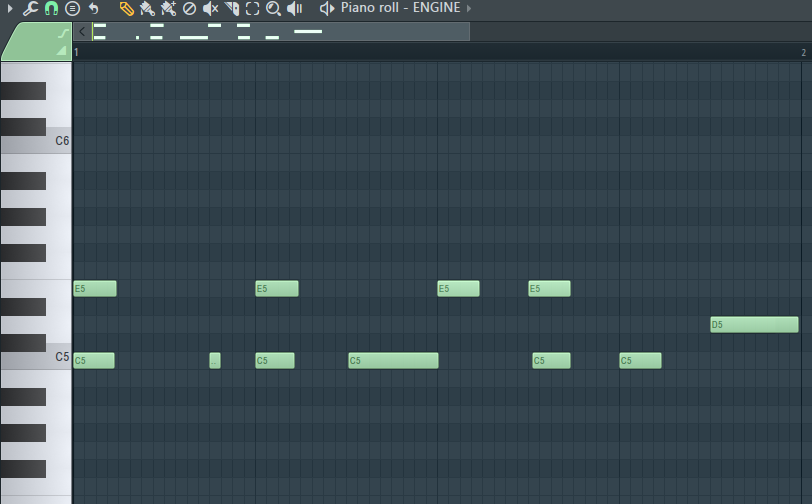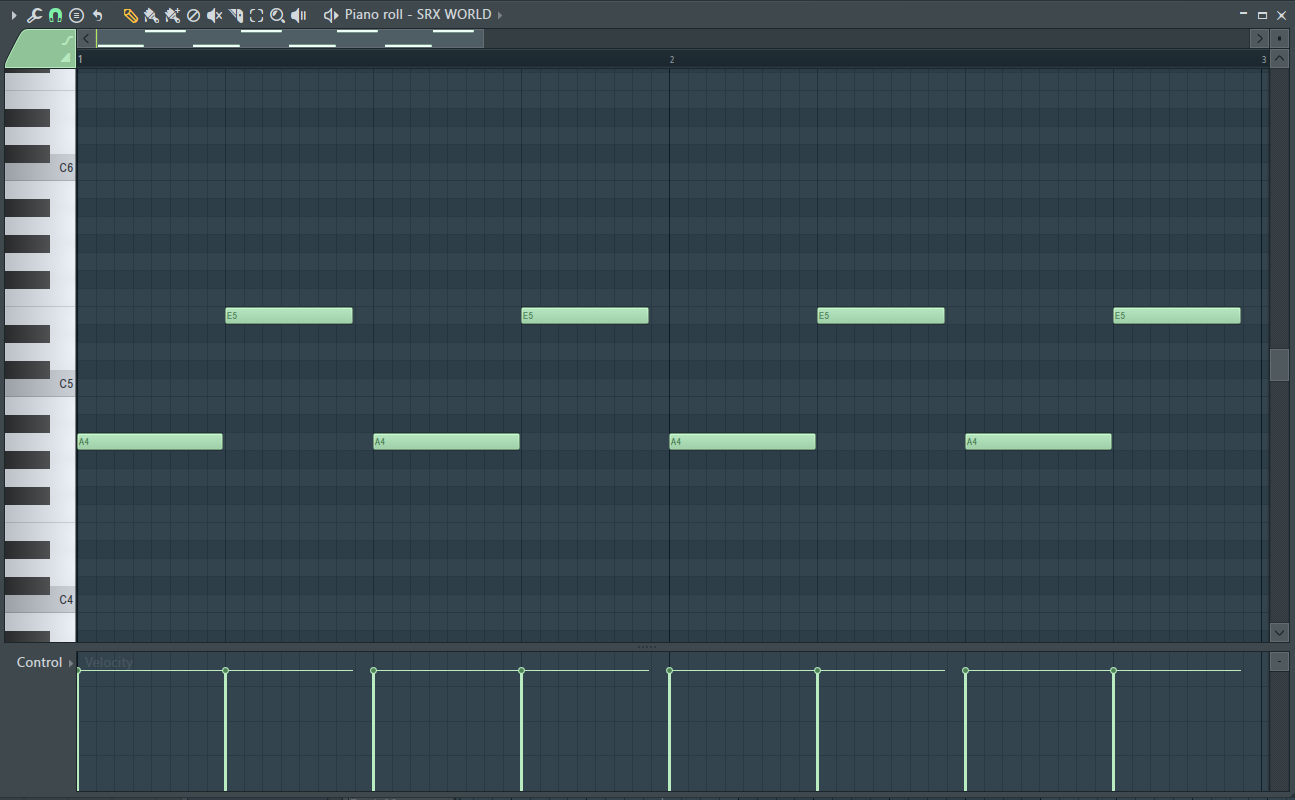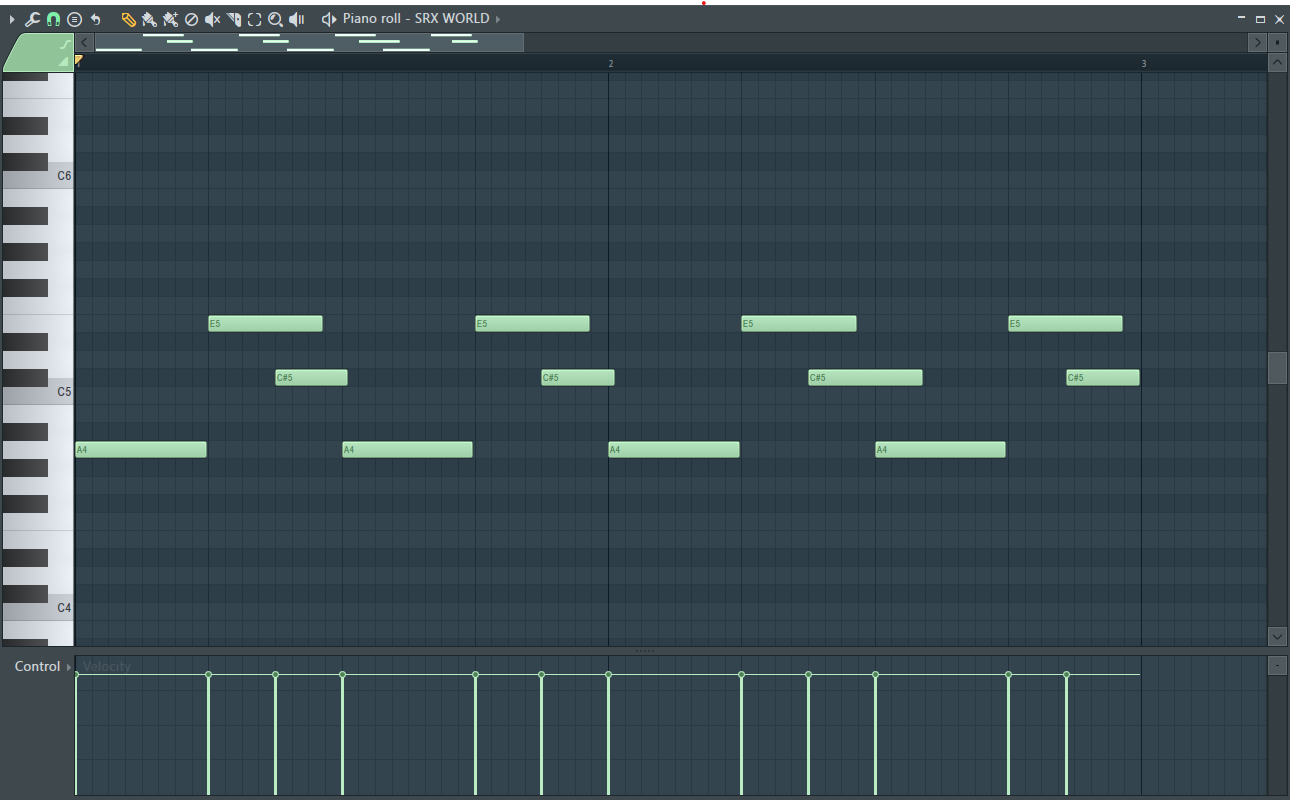When I started working on Stouthollow Tales and decided that I wanted to write my own soundtrack, I had just about no experience writing music. I can't read music, I can barely play parts of a few songs on the piano and guitar and before I really started to try, I was almost tone deaf. I still don't consider myself very good at songwriting or the production of music, but I'll walk you through the steps I go through to get at least a decent sounding song. In this post I'll be talking about “Cave”, a song I wrote for…Well, Caves in Stouthollow: https://soundcloud.com/whistlingalpaca/cave
Part 1: Rhythm
The first part that I establish for ANY of my songs, is a rhythm. This is the part of my song that all other sounds are going to be dancing around. It should sound good on it's own, and you should be able to listen to it many times in a row without getting sick of it. Not getting sick of any part of your song is one of the most important parts to writing video game music. With “Cave” I chose to go with a very rapid drum beat compared to what I normally write.

3 very big, echo-y drums fill out the entire roll here, ending with a nice tambourine.
Part 2: Lead
Next I usually write my lead. This is either a melody, or a more rhythmic lead that should be able to repeat and switch between at least 2 variations. In “Cave” I chose a really weird tube-instrument sound from Roland's SRX World".

This instrument supported the echo-y, heavy, big sounds of the drum which really helped with the whole idea that this was the theme for a cave. The piano roll on this one is dead simple:

But the roll does have one variation which gives it a little bit of flavor:

Overall I try to use my lead melody to drive the song forward.
Part 3: Accompaniment
This is where all of the flavor of “Cave” comes in. This part provides a variation of the lead's drone, and serves to break the song up in long sections where I'm just repeating the main melody. You can get wild with this section, but since I'm not very skilled at writing music, my accompaniments tend to be very tame. In this case I used a guitar/lute sound to twang along with the lead. Running your accompaniment out of time from your lead is a good way for it to be noticed, but it's also an opportunity for your lead to get some harmony. Or you could do both, I tend to noodle around a lot on my keyboard trying to find the best sound for a song.
Part 4: Weird Stuff
In most of my songs I like to add some weird stuff. In this case I found something called “Rama Cym” which is a really echo-y, kind of scratchy bell that plays at random intervals. I tend to add weird stuff to either break up a song during boring sections, or to add a feeling of atmosphere to a song. In this case it sounds like miners striking ore, echoing through the caves.
Part 5: Leveling & Mastering
This is a continuous process for me. I don't have a rule of thumb for leveling, but it might be the most important part. Make sure all of your instruments are at the volume you want them to be at. Make sure they're filling that niche in your song, and not stepping on another instruments toes (unless you want it to). As far as mastering, I always tend to EQ out the low end (I guess its called a high pass filter :P ). After that I simply fiddle with the levels until it sounds good on at least 2 different pairs of headphones/speakers. Also adding reverb/chorus/etc as you see fit.
Part 6: Make someone else listen to it; iterate
The final step is to force someone who has no other option to listen to your song. Take their criticism and go back and iterate on your song. I usually find that I hold different opinions on my music from day to day so waiting a little bit before trashing an entire song is always a good idea.



I am more than sure that many people who love to write music are not that good at singing. The same case with literature, a lot of people who can be good writers do not like to read. I have heard that Scott Fitzgerald who wrote Great Gatsby didn't like other writers. Still, his novel really worth attention, I read here https://gradesfixer.com/free-essay-examples/the-great-gatsby/ a few more details about it on this site and can confirm that it is a masterpiece in the terms of literature. So it is fully normal to create music but to be non-musical. As the old proverb says "The shoemaker's son always goes barefoot".